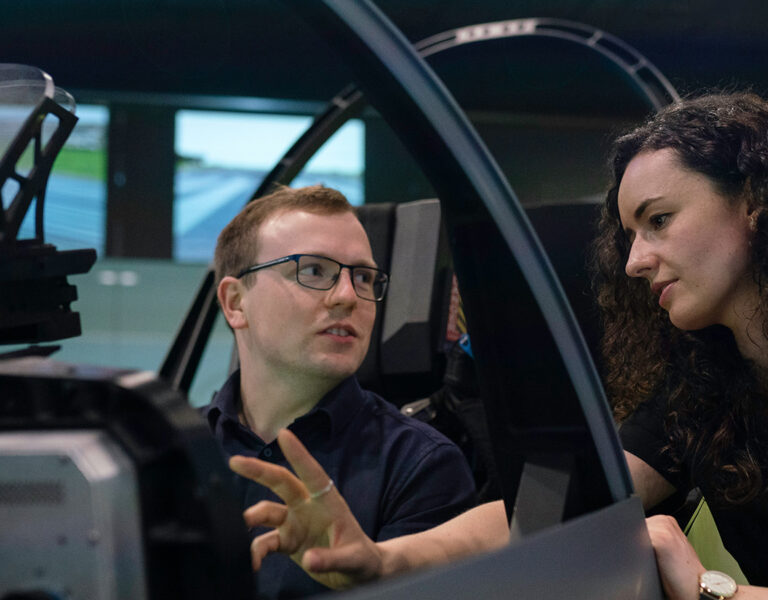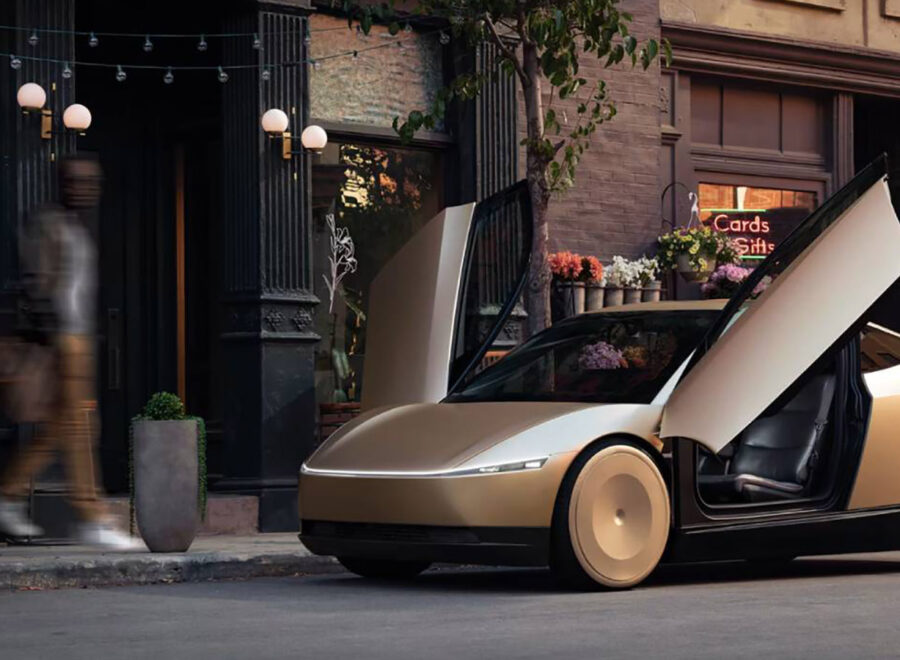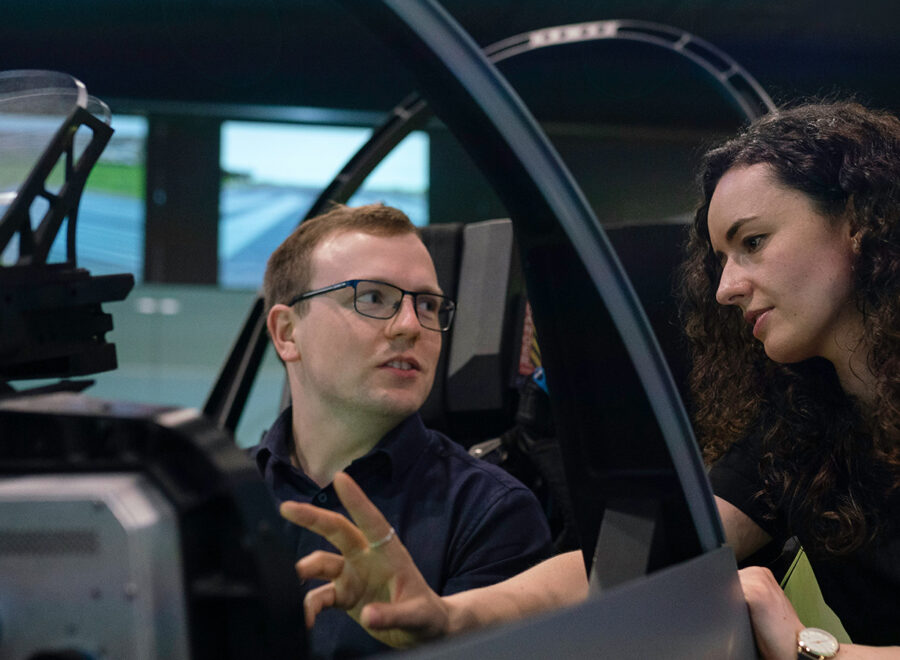Leaders are missing something crucial if they think that solving technology challenges is sufficient for success. That’s because tech problems are never just tech problems—they’re also technology adoption problems.
The new CEO of GM’s autonomous vehicle maker Cruise has no experience in the auto industry and knows far more about video gaming than selling cars. And he’s an excellent pick for the job.
The appointment of Marc Whitten, a veteran tech executive who cut his teeth as a lead engineer on Microsoft’s Xbox team, is part of a broader leadership shift as many companies recognize a new reality: their success increasingly depends on solving really hard technology problems.
We’ve entered a new era in which tech-focused companies are pushing the boundaries of innovation in a way they haven’t for decades. The past few years have seen the rise of generative AI, autonomous vehicles, RNA vaccines, GLP-1 analogs like Ozempic, and advances in renewable energy tech like electric car batteries and solar panels. This makes it more important to have leaders who have a background in science or engineering, or who are at least willing to go back to school every day to learn about it.
To be sure, tech companies have always needed technology expertise in the C-suite. But many have differentiated themselves with their platforms and services rather than their underlying tech. Meta is arguably a media firm as much as a tech company. Companies like Uber, DoorDash, and Zillow are really services companies built on established technology. Those companies faced fundamentally different business challenges to the ones faced by tech pioneers like Intel and Cisco. And they’re different from what Nvidia, Waymo, OpenAI, and Novo Nordisk are confronting now. Technology has gotten technical again.
So it’s a good thing that more companies are choosing tech-savvy leaders. IBM picked cloud technology engineer Arvind Krishna as its CEO in 2020, following two tenures by salespeople. Microsoft chose engineer Satya Nadella to succeed former sales executive Steve Ballmer.
Still, leaders are missing something crucial if they think that solving technology challenges is sufficient for success. That’s because tech problems are never just tech problems—they’re also technology adoption problems. Companies neglect this at their peril—without adoption, all you’ve got is a cool new thing that no one wants. It’s vital to pay careful attention to how customers and society at large feel about an innovation and to then tailor products and services that meet people where they are, rather than where you want them to be.
What Monsanto Missed
Agrochemical firm Monsanto’s bungled introduction of genetically modified crops in the 1990s is a cautionary tale of how damaging it can be to ignore issues of technology adoption.
Its CEO, Bob Shapiro, was so convinced that GMO crops were the best thing for agriculture since the invention of the plow that he dismissed concerns from farmers and consumers about the risks. After all, the new technology could create vitamin A-fortified crops to prevent diseases like river blindness in developing countries—while at the same time increasing yields and reducing the need for pesticides. The weight of scientific evidence would surely crush any doubts, Shapiro thought.
By the end of the decade, though, fears about “Frankenfoods” had turned into a full-blown consumer resistance movement against GMO crops, undermining U.S. grain exports, tanking Monsanto’s share price, and casting a cloud over the technology that lingers today.
Big Tech has often paid a price for assuming consumers will eagerly embrace a cool new innovation. Meta, for example, has faced a consumer and regulatory backlash to its leadership’s assumption that Facebook and Instagram users would be happy to trade privacy for greater convenience and better user experience. In 1999, Sun Microsystem’s CEO Scott McNealy insisted that privacy was dead and that consumers needed to “get over it.” We haven’t.
It’s up to tech leaders to pay close heed to consumers’ concerns and needs and to implement tailored design strategies for every stage of a product’s diffusion. Tech adoption theory teaches us that new ideas win over groups on the adoption curve at different times and for different reasons. It’s the reason companies that come out with a new technology often aren’t the ones that succeed with it. The iPhone wasn’t the first smartphone; it was, however, the first to make consumers realize they needed one.
Today’s transformative leaps in technology—which come with all sorts of implications for people’s safety, privacy and daily lives—make it even more critical that leaders have a tech adoption strategy to support the tech.
Autonomous vehicles are proving to be an incredibly hard technical problem to solve, for example, but consumer resistance to trusting their lives to a driverless car is just as crucial to address. Generative AI bots show huge promise as virtual nurses and doctors, but how ready is the average patient to entrust them with their and their loved one’s health?
Show, Don’t Tell
Tech companies can’t assume that just because they’ve built a better mousetrap the world will beat a path to their door. They need to listen to people’s reservations about their products and their reasons for not adopting them—rather than expecting them to “just get over it”—and to find convincing and vivid ways to demonstrate that those fears or doubts are misplaced.
This isn’t a new phenomenon. It seems crazy now, but no one trusted elevators when they first started to appear in buildings in the early 19th century. People would take the stairs rather than risk getting into the gravity-defying contraption. After all, what if one of the cables broke? The adoption of elevators waited until Elisha Graves Otis demonstrated a new safety brake in 1854 at the Crystal Palace Exposition in New York, cutting the cable of an elevator while he was standing on it.
Even the telephone needed a tech adoption strategy. People were initially skeptical of the invention, dismissing it as expensive, intrusive, and unreliable compared to the trusty telegraph. Sensing that the broader public wasn’t yet ready, Alexander Graham Bell focused on demonstrating the technology by wiring up New York’s St. Denis Hotel—a popular destination for well-heeled visitors to the city’s best theaters, restaurants and stores. He knew that people would be more inclined to try something new while on vacation and that they would be seen using it by other potential early adopters.
Likewise, companies today should look for ways to win over influential early adopters to prove their case rather than going straight for the mainstream.
For driverless vehicle makers like Cruise, that could mean focusing on locations where aspirational consumers are more likely to be found, such as high-end resorts. Or putting the autonomous tech into golf carts to enable people to try it out in a low-risk setting compared to the congested urban environments where Waymo and Cruise have focused their pilot programs.
Rather than plow ahead with ever more advanced products, generative AI companies must first acknowledge people’s very real anxiety over how the technology could take their jobs—not to mention doom humanity—and find persuasive ways to allay these fears.
It’s wonderful to see tech companies becoming great again at developing original technology, but they need to be thinking just as hard about driving adoption. Appointing engineer leaders is the obvious and smart first step, but the second one is harder. It demands a meaningful investment into understanding their potential customers—what they need, what their concerns are—and working creatively to demonstrate they’ve heard them. Do that effectively, and they’ll have scaled the technology adoption wall.

 Dev Patnaik
Dev Patnaik


